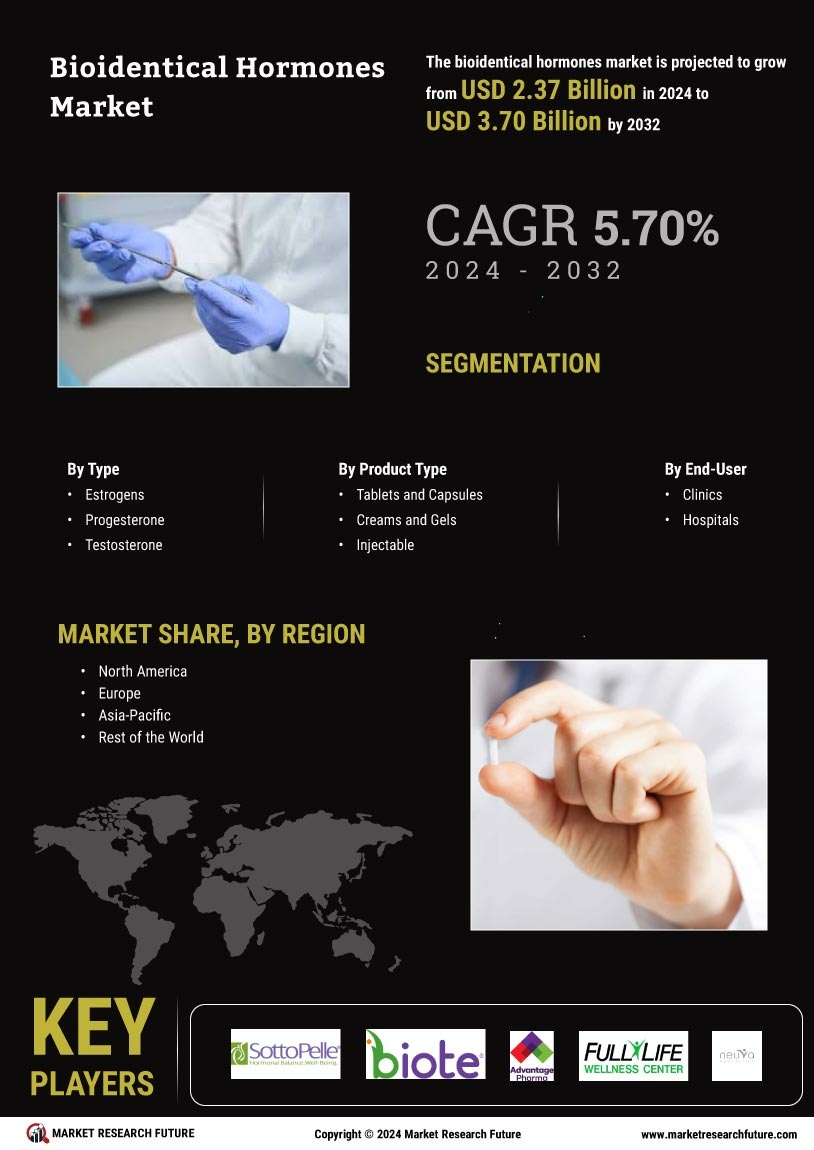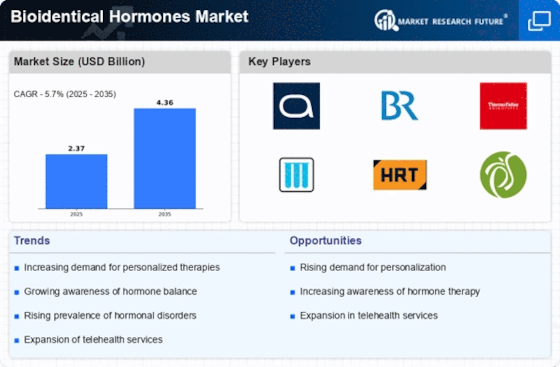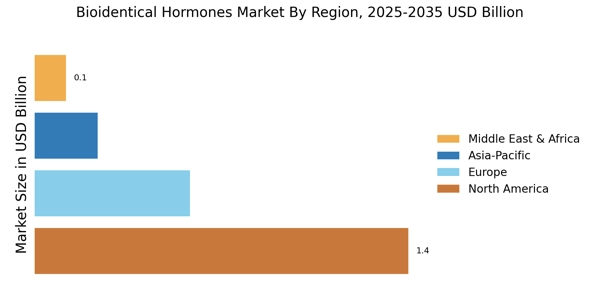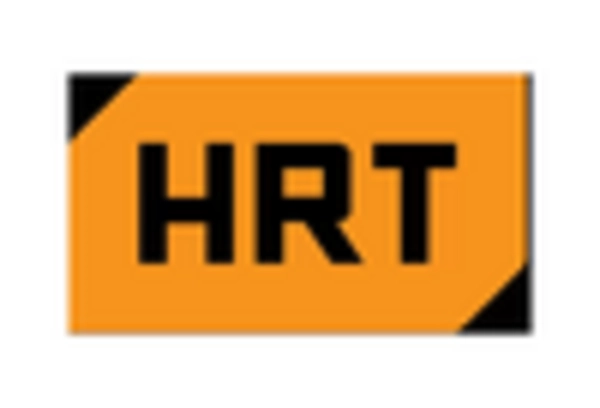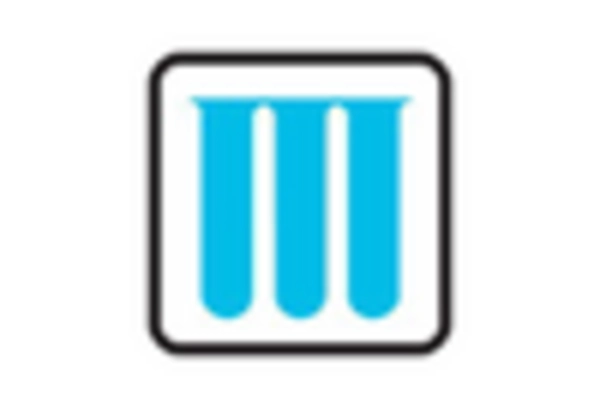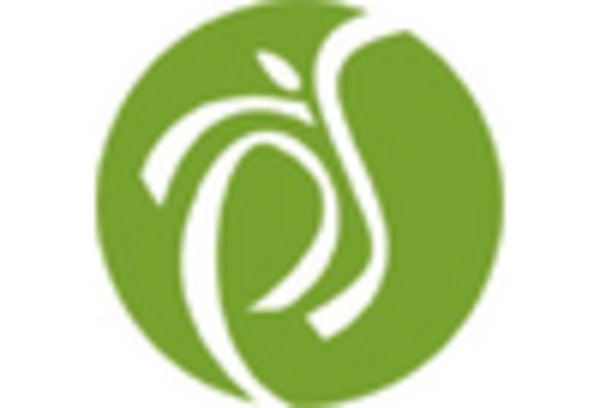Growing Awareness of Hormonal Health
The increasing awareness surrounding hormonal health is a pivotal driver for the Bioidentical Hormones Market. As individuals become more informed about the implications of hormonal imbalances, there is a rising demand for effective treatment options. This awareness is often fueled by educational campaigns and the proliferation of information through digital platforms. Consequently, healthcare providers are witnessing a surge in inquiries regarding bioidentical hormone therapies. Reports indicate that the market for bioidentical hormones is projected to grow at a compound annual growth rate (CAGR) of approximately 8% over the next few years, reflecting the heightened interest in personalized hormonal treatments. This trend suggests that as more individuals seek solutions for hormonal issues, the Bioidentical Hormones Market is likely to expand significantly.
Aging Population and Hormonal Changes
The demographic shift towards an aging population is a crucial factor influencing the Bioidentical Hormones Market. As individuals age, they often experience hormonal changes that can lead to various health issues, including menopause in women and andropause in men. This demographic trend is expected to drive demand for bioidentical hormone therapies, as older adults seek to alleviate symptoms associated with hormonal decline. Data indicates that by 2030, the number of individuals aged 65 and older is projected to reach 1.5 billion, creating a substantial market for hormone replacement therapies. The Bioidentical Hormones Market is poised to benefit from this growing segment, as healthcare providers increasingly recommend bioidentical options to address age-related hormonal imbalances.
Shift Towards Natural Treatment Options
There is a notable shift towards natural treatment options among consumers, which serves as a significant driver for the Bioidentical Hormones Market. Many individuals are becoming disenchanted with synthetic hormone therapies due to concerns about side effects and long-term health implications. Bioidentical hormones, derived from natural sources, are perceived as a safer alternative, aligning with the growing preference for holistic and natural health solutions. This trend is reflected in market data, which suggests that the demand for bioidentical hormones is increasing, particularly among health-conscious consumers. As more individuals seek out natural therapies, the Bioidentical Hormones Market is likely to experience sustained growth, driven by this consumer preference for safer, more natural treatment modalities.
Advancements in Hormone Therapy Research
Ongoing advancements in hormone therapy research are propelling the Bioidentical Hormones Market forward. Scientific studies continue to explore the efficacy and safety of bioidentical hormones, leading to improved formulations and delivery methods. These advancements not only enhance the effectiveness of treatments but also contribute to greater acceptance among healthcare professionals and patients alike. Research indicates that innovative delivery systems, such as transdermal patches and subcutaneous implants, are gaining traction, making bioidentical hormone therapies more accessible and user-friendly. As research continues to validate the benefits of bioidentical hormones, the market is likely to expand, driven by increased confidence in these therapies among both practitioners and patients.
Regulatory Support for Bioidentical Hormones
Regulatory support for bioidentical hormones is emerging as a vital driver for the Bioidentical Hormones Market. As regulatory bodies recognize the importance of these therapies, there is a growing framework that supports their development and use. This regulatory backing not only enhances the credibility of bioidentical hormones but also encourages pharmaceutical companies to invest in research and development. Recent initiatives aimed at streamlining the approval process for bioidentical hormone products suggest a more favorable environment for market growth. As regulations evolve to accommodate the unique characteristics of bioidentical hormones, the Bioidentical Hormones Market is likely to benefit from increased product availability and consumer trust.
